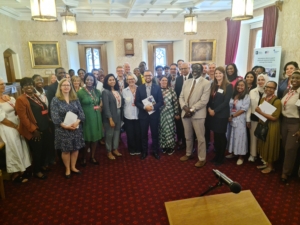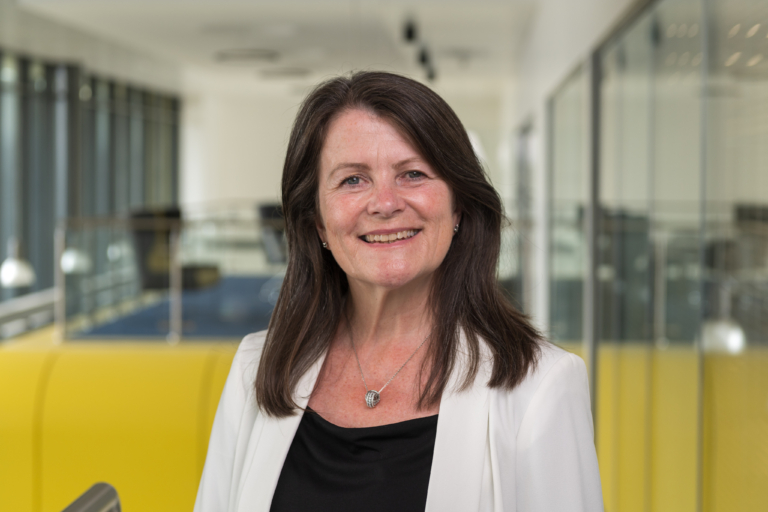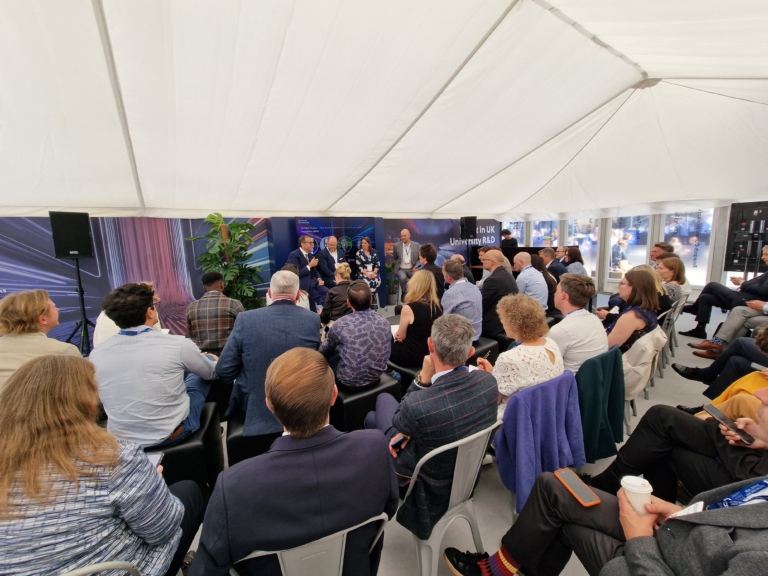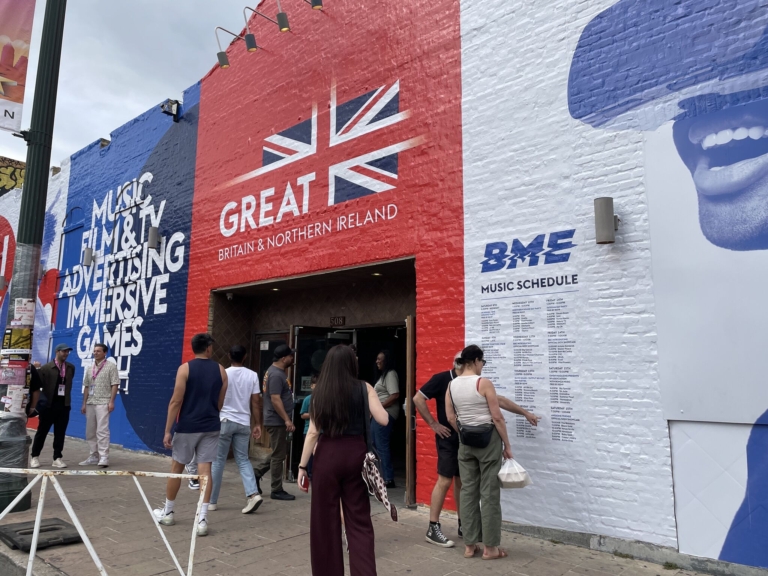Alex Archibald, MI Health Project Manager, reflects on the partnership's successes
2024 has been a year for uplifting and expanding engagement with key Midlands Innovation Health (MI Health) stakeholders at a regional, national and international level. Both MI Health and our partners have seen success in reaching new (or considerably elevating existing) audiences by exploring new sectors, approaches and research landscapes, as well as exciting new opportunities to engage with our local communities. To celebrate those successes, to recognise the fantastic teams that have delivered them, and to look forward to more exciting opportunities in 2025, here is a summary with the thanks of the MI Health team.
MI Health activity at home and abroad
2024 saw the MI Health team taking a fresh look at how we work with regional partners and how we communicate with external parties. This focused on reviewing how we can best bring researchers/professionals together, how to further enable cross-organisational working, and how to most effectively communicate our message to the widest and most impactful audiences. We have also supported both our networks and national stakeholders to do the same, taking new approaches that have delivered significantly improved results.
- Working with those closest to the topic and able to make the change
Following the successful virtual launch of the Midlands Extracellular Vesicle (EV) Network in September 2023, Midlands Innovation and MI Health have been supporting the network’s Early Career Researcher-led committee to identify and coordinate the EV strengths and capabilities available across the partnership (a summary of these can be found on MI Health website). By working with ECR, under the stewardship of senior regional leaders, we have been able to react faster to opportunities and dedicate more time across the network than we have previously been able to achieve. This work has culminated in a presentation at the UK Society for Extracellular Vesicles EV Forum and an exciting programme of training opportunities for Midlands ECRs and PhDs students to be delivered in 2025. The network will be showcasing this programme and the region’s strengths in this developing field of research at their inaugural industry-sponsored conference in March 2025 (registration will open shortly).
MI Health highly values the experience and insight of our partners’ students and are seeking to continue and build on our work, particularly when it comes to challenging areas. In February, MI Health supported the student-led Midlands Racial Equality in Medicine Network (MREM) to deliver the annual conference at Keele University, attended by over 100 students and staff passionate about supporting the topic and the network. Through this platform and its grant funding scheme, activity is delivered to increase research related to improving racial equality, reduce the attainment gap, and raise the profile of working groups. By supporting MREM to build connections between regional medical schools, we aim to enable staff and students to share upcoming initiatives, disseminate research and create joint ventures.
Looking externally, connecting communities that may not meet regularly and allowing them to work collaboratively to produce better outcomes is a key part of the added value MI Health seeks to provide. A fantastic example of this is bringing Midlands researchers together with NHS data analysts to accelerate innovations and co-develop within NHS data infrastructures. So, when the opportunity came in mid-June to support the Midlands Health Data Research UK network to deliver this ambition at their annual conference in Nottingham, we were delighted. The event, with 150 delegates from the Midlands and beyond (including Taiwan and Australia), was opened by Anthony May OBE DL (Chief Executive Officer at Nottingham University Hospitals NHS Trust), and followed by Professor Andrew Morris (Director of HDR UK), and Hilary Fanning MBE (Senior Responsible Officer for the Data for R&D Programme at NHS England).
These activities also involved supporting national organisations to tailoring their delivery to a Midlands audience. An example of this was seen when, in accordance with the Medical Research Council’s (MRC) Place Framework, a new approach was proposed this year regarding the MRC’s visits to UK universities. Previously focused on the most highly funded institutions, MI Health worked with the funder to deliver its first annual MRC Midland Community Visit at Loughborough University at the end of June. We ensured that this open and regional strategic discussion included two sessions focused on areas of importance to the Midlands (improving research culture and tackling health inequalities), as well as facilitating key representatives to present our specific challenges. The success of this process and the subsequent event (both for the MRC and the region) has ensured that MI Health will continue to support delivery of future MRC events in the Midlands.
- Taking an international view
While focusing on connecting the region, coordinating individual assets and showcasing our strengths nationally, it is easy to forget that to international investors/companies even the entire UK market is just a small part of the global landscape. It is, therefore, vital that we combine our shining examples of excellence and greatest opportunities into the big picture, more so than ever before, to speak to those audiences and to answer the often-overlooked questions: ‘So what? What does it mean for us? How can we easily get involved?’. This is where the Invest in UK University R&D – Midlands Campaign comes in. As of this year, MI Health is supporting the health activities of this initiative to take our strengths out into the global markets (starting with Australia, Japan, Germany, Singapore, South Korea and the USA).
Following the Campaign’s highly successful multi-disciplinary visit to Singapore SWITCH in October, MI Health took an investment-ready delegation of industry-facing academics, innovative spin-outs and research active companies to MEDICA in Düsseldorf in November (see photo below). We aimed to showcase the wealth of opportunities within the Midlands university-driven R&D ecosystem through a range of activities. Working with the UK Department for Business and Trade (DBT) and Medilink UK, this included a well-attended 2hr showcase event led by Mark Oakes (Head of Life Sciences at UK DBT), the opening address and co-sponsorship of the UK Pavilion reception (>200 attendees), a Midlands dinner (kindly sponsored by Spirit Healthcare) and 1:1 meetings with investors and market access organisations.

Mark Oakes (Head of Life Sciences at UK DBT), provides the opening address at the UK Pavilion at Medica
Closer to home, in 2024, MI Health continued and improved engagement with DBT’s regional team to support their inward international delegations, including a ‘Developing Sector Knowledge’ visit to Birmingham and Nottingham in March with DBT colleagues from across the world, and a senior healthcare providers delegation from India to Aston in October. Both events saw key international stakeholders engaging directly with the Midlands latest strengths and opportunities.
The focus on investment has given MI Health activity a new lens through which to channel engagement at events, including the Medilink Midlands Innovation Day, the Charnwood Campus Sustainable Innovation In Healthcare, Spark the Midlands events, the Aston Institute for Membrane Excellence launch and both the Labour and Conservative Party Conferences. All of which provided partners with new opportunities to engage with local industry, innovators and infrastructure. An event of particular importance to this agenda was the West Midlands Health Tech Innovation Accelerator’s International Assembly held in early December at the NEC, Birmingham. The flagship conference was attended by hundreds of national and international sector leaders, looking to grow Health and Life Science technologies in and with the region.
2024 concluded with the MI Health Board coming together to reconfirm partner’s commitment to collaborative working under our three strategic themes – tackling health inequalities (including community health and ethnic health), improving the culture of collaboration (including how we can work more sustainably), and increasing inward investment into the region (both nationally and internationally). Moving forwards into 2025, this will allow us to continue to promote and encourage excellence across our network, such as in the following highlights.
Key collaborative successes for partners
Last year, Aston University acquired the iconic 10 Woodcock Street Building for strategic expansion in Birmingham Innovation Quarter. It will be the new home of Aston Business School, Aston Law School, spin-out Aston Vision Sciences and the new state-of-the-art community-focused Aston Integrated Healthcare Hub. The new hub will offer comprehensive preventative health and wellbeing services and will showcase the latest advancements in digital healthcare including a digital centre for remote patient monitoring. It will also adopt an innovative ‘living lab’ concept by embedding research, training and student placements.
Professor Joht Singh Chandan from the University of Birmingham has recently been announced as co-lead of the £50m National Institute for Health and Care Research (NIHR) Challenge Maternal Disparities Consortium with the aim of tackling inequalities in maternity care. The University of Birmingham is one of nine lead universities in the consortium, and will work with the universities of Keele and Warwick, and Birmingham City Council.
Keele University has been working tirelessly to uplift participation and knowledge mobilisation from the region’s research. Building on the November 2023 workshop delivered by the Keele Impact Accelerator Unit in partnership with the University of Warwick, as part of the NIHR Dissemination and Knowledge Mobilisation Team’s online series (introducing the rationale and importance of mobilising research knowledge with members of the public), researchers at the university have continued to uplift patient awareness. A key example is the multimedia Patient Explanation Package for OsteoArthritis (PEP-OA) programme, developed to improve osteoarthritis explanations to help patients understand and manage their condition – work that featured in the Versus Arthritis Joint Health campaign.
The University of Leicester, alongside University Hospitals of Leicester, is expanding its research through two key programmes. The first sees a £7m investment from the British Heart Foundation and the university to boost cardiovascular research into the causes of common and rare diseases, as well as refining appropriate treatments and interventions. The second is through a £14m award to expand the Leicester Lifestyle and Health Research Group to investigate the prevention and management of chronic disease through physical activity.
The universities of Loughborough and Nottingham are partners in a successful application by Trent University to lead a world-class impact £2.5m accelerator that will connect hundreds of East Midlands MedTech SMEs with health and care professionals, academics and the public to drive the design, development and delivery of pioneering rehabilitation technologies. The Engineering and Physical Sciences Research Council funded ‘EMERGE’ project – East Midlands Emerging RehabTech Growth Enterprise – will launch the East Midlands as the UK’s ‘RehabTech Valley’.
In 2024, the University of Nottingham continued its track record of translating medical expertise into real work interventions in the areas of Neurology and Oncology. Firstly, by being awarded over £3.5m for three cross-disciplinary UKRI funded projects to investigate new technologies in the treatment of cancer (with Nottingham University Hospital), diabetes and lung disease (with other UK universities including Birmingham and Leicester). Secondly, a group of leading scientists from the University of Nottingham are part of a USA-led global, interdisciplinary team who will be taking on cancer inequities through the $25m Cancer Research UK Grand Challenge SAMBAI project.
A new study from the University of Warwick is looking at how an app and remote consultations could help the NHS support people living with obesity. By comparing the effectiveness of the digital pathway utilising app ‘Gro Health W8Buddy’ and traditionally delivered NHS specialist weight management services, the NIHR-funded study (with 450 patients across four hospital sites) aims to improve patient access to care and reduce health inequality.
Showcasing individual partner achievements
Dr Sukhvir Wright at Aston University’s Institute for Health and Neurodevelopment, and honorary consultant neurologist at Birmingham Children’s Hospital, has been awarded a £3.4m Career Development Award from Wellcome to research autoimmune encephalitis, an inflammatory brain condition, in children. The research will use laboratory models as well as Aston University’s new, cutting-edge magnetoencephalography (MEG) scanner.
Professor Yemisi Takwoingi from the University of Birmingham has won the 2024 award for Public Sector/Services, NHS and Education in the Evenfields Black Talent Awards. The honour celebrates her success as a role model and the various ways that she supports students and colleagues to seize opportunities for development and progression in their health and social care careers.
Keele University featured as a case study by the NIHR Race equality Public Action Group (REPAG) for its work on public involvement in research, including the recruitment of a Patient and Public Involvement lead to focus on race. Subsequently, the university hosted the REPAG Race Equality Framework Community of Practice network, which aims to support organisations using the Framework, to improve racial competence.
Researchers from the University of Leicester’s Centre for Environmental Health and Sustainability have been awards £5.5M to work with the UK Health Security Agency and the Health and Safety Executive to deliver one of 13 NIHR Health Protection Research Unit. The partnership will focus on protecting the public from health threats including chemical hazards and air pollution, including antimicrobial resistance, climate change and pandemics.
Loughborough University has signed a landmark global partnership agreement with The Global Observatory for Gender Equality & Sport (the GO) to drive equality in sport. The two organisations formed a strategic collaboration that will expand research and innovation activities related to advancing gender equality in sport globally. The agreement sees Loughborough become the first UK-based university to enter a partnership with the GO.
Two technologies, based on University of Nottingham research, which reduce the severity of tics in people with Tourette’s are closer to patient use after being recommended in draft guidance by NICE – the first time a NICE committee has recommended digital therapies for these conditions. Developed by UoN spinout Neupulse, the wrist-worn device delivers electrical pulses to reduce the amount and severity of tics experienced, while the Online Remote Behavioural Intervention for Tics (ORBIT) is a digital tool with self-help interventions.
The University of Warwick has unveiled an unprecedented £700m capital investment in its West Midlands campus as part of its ambitious Connect Programme. This is the largest single investment in campus facilities across its entire 60-year history. The first phase of the project will provide 260,000 sq ft of space for research, education, study and work for the science, engineering and medicine departments.
After a year of many and varied challenges, we congratulate our partners on their achievements and look forward to a successful and prosperous 2025.






